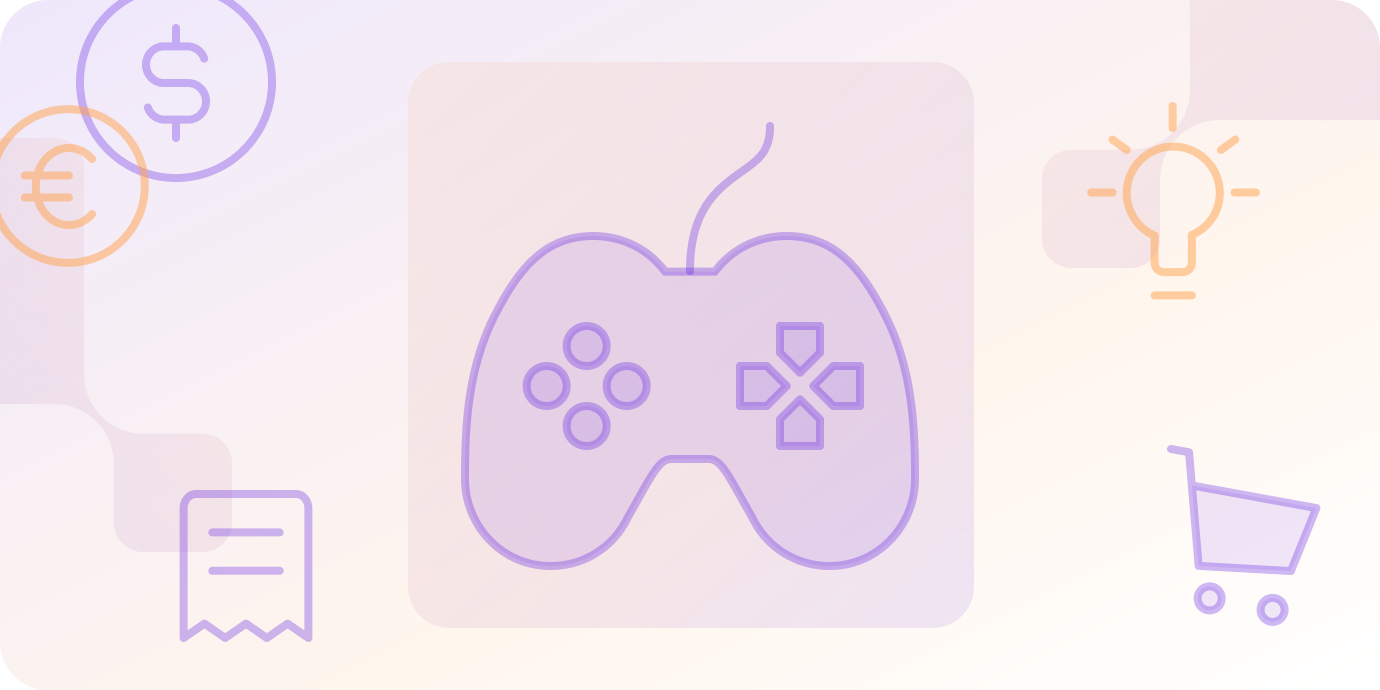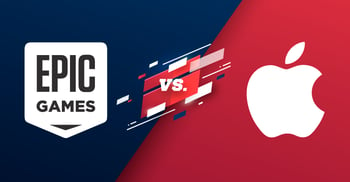How to Sell Indie Games Online: The Complete 2025 Guide

Quick Answer: Indie game creators can sell their games through three primary channels: large platforms (Steam, Epic Games), niche marketplaces (GOG, itch.io), and their own websites. Success necessitates intelligent marketing, community building, and selecting the appropriate income model for your intended audience.
Indie titles make for 95% of all games on Steam, but just 40% of overall sales. This data demonstrates two essential truths: indie games are extremely popular, yet successful sales require specialized knowledge and deliberate preparation.
Where to Sell your Indie game
Major platform, niche marketplace, or personal website? Some bring exposure, whereas others give you control and access to a more curated audience base. So, what would you prefer?
Before you answer that question, let’s understand the ins and outs, pros and cons of the options you’re given.
Major Gaming Platforms: Maximum Exposure, Shared Revenue
A major platform is a digital distribution network with a large user base and a variety of features to help developers market and sell their games. If you think about it, major platforms are very much like online marketplaces.
Best Major Platforms for Indie Games:
Steam: 33 million concurrent players, nearly 30,000 games available
Epic Games: 31.3 million daily active users, 12% revenue share
Google Play: ~2.5 million $42.3 billion consumer spending (2022)
Apple App Store: 2.18 million apps and games available
Nintendo PlayStation
Pros And Cons Of Niche Platforms
Advantages
Access to massive user bases
Built-in marketing and discovery features
Cross-platform compatibility increases reach
Strong community features and social support
Established payment processing systems
Disadvantages
High competition (thousands of games published daily)
Significant revenue sharing (12-30% platform fees)
Limited control over pricing and promotions
Platform-specific content requirements
No guaranteed marketing support
Niche Indie Game Platforms: Targeted Audience, Better Revenue Splits
Niche platforms are online marketplaces that tend to focus on specific gaming genres, like Indie games. Although they serve the same purpose as major platforms, niche ones provide users with a more curated experience and a greater sense of community.
Best Niche Platforms for Indie Games:
GOG (Good Old Games): 21.9 million users, better revenue splits
itch.io: Flexible revenue sharing (0-30%), complete developer control
Humble Store: Standard is 75/15/10 split, 400,000 monthly subscribers
Game Jolt: 4 million monthly active users
Pros And Cons Of Niche Platforms
Advantages
Audience already interested in indie games
Better revenue sharing agreements
More developer support and flexibility
Stronger community engagement
Greater pricing control
Disadvantages
Smaller overall audience
Longer time to gain traction
More intensive marketing is required
Lower absolute revenue potential
Selling Through Your Own Website: Maximum Control, Maximum Responsibility
Self-publishing through your own website offers complete control but requires handling all business operations independently.
Create Your Platform
Build a professional gaming website
Integrate social media connections
Establish clear brand identity
Include direct communication channels
Choose Payment Processing
Support multiple payment methods and currencies
Ensure tax and compliance management
Implement fraud prevention systems
Enable flexible pricing models (one-time, subscription, freemium)
Develop Marketing Strategy
Invest in SEO and content marketing
Run targeted advertising campaigns
Maintain active social media presence
Participate in gaming communities
Pros and Cons of Using Your eCommerce Business as Your Platform
Having complete control of your game’s development and publishing journey means you’ll have a unique set of advantages and challenges.
Advantages
Complete control over pricing and marketing
Keep 100% of revenue (minus payment processing)
Direct customer relationships
Unlimited customization options
Disadvantages
Responsible for all technical and legal aspects
Requires significant marketing investment
Need expertise in multiple business areas
Higher upfront costs and risks
How Do You Market Indie Games Successfully?
Create Compelling Visual Content
Develop Strong Trailers and Gameplay Videos:
Showcase your game's most unique features
Create multiple trailers for different audiences
Focus on gameplay mechanics that differentiate your game
Research successful trailers in your genre
Offer Demo Versions
Demos serve multiple critical functions:
Allow players to experience your game risk-free
Provide valuable user feedback and bug reports
Build early community engagement
Increase conversion rates for full game purchases
Participating in Gaming Events
Key Gaming Events for Indie Developers:
PAX (Penny Arcade Expo): Multiple cities including Boston, Seattle, Melbourne
GamesCon: World's largest gaming trade fair in Cologne, Germany
IndieCade: Los Angeles festival dedicated to independent games
A MAZE Berlin: Annual independent games and culture event
Implement Strategic Pricing
Effective Pricing Strategies:
Launch with competitive introductory pricing
Offer regular content updates and DLC
Run seasonal promotions and sales
Consider freemium or free-to-play models with microtransactions
How Can PayPro Global?
Through our all-in-one Merchant of Record helps game developers, you can monetize every touchpoint with the least amount of hassle, from the adoption of strategic pricing to the smooth checkout process for trailers and demos.
eCommerce Partner
Thrive with the industry's most innovative all-in-one SaaS & Digital Goods solution. From high-performing payment and analytics tools to complete tax management, as well as subscription & billing handling, PayPro Global is ready to scale your SaaS.
Sell your SaaS globally with PayPro Global!
How Can Indie Developers Build Player Communities?
Self-publishing through your own website offers complete control but requires handling all business operations independently.
Launch Crowdfunding Campaigns
Popular Crowdfunding Platforms:
Kickstarter: Largest gaming crowdfunding platform
Indiegogo: Flexible funding options available
Crowdfunding Benefits:
Build a community before launch
Generate development funding
Create loyal early adopters
Gather valuable market feedback
Establish Beta Testing Programs
Where to Find Beta Testers:
Paid platforms: Fiverr, Upwork, Antidote, Testbytes
Free communities: Reddit (r/beta, r/freegames, r/testflight)
Discord communities: Gaming-specific servers
Beta Program Advantages:
Build relationships with engaged players
Receive crucial feedback for improvements
Create launch-day player base
Test monetization strategies
Leverage Social Media and Discord
Essential Social Media Platforms:
Discord: Direct developer-player communication
Reddit: Dedicated gaming subreddits and AMA opportunities
Twitter/X: Real-time updates and community engagement
Instagram: Visual content and behind-the-scenes content
Actively Engage with Player Feedback
Feedback Collection Methods:
Platform-based review systems
Dedicated feedback forms on your website
Interactive demo versions
Social media engagement
Community forum discussions
What Are the Financial Considerations?
|
Platform |
Revenue Share |
Additional Fees |
| Steam | 30% | $100 submission fee |
| Epic Games | 12% | None |
| Google Play | 15% (first $1M/year), 30% after; 15% for subs | $25 one-time account fee |
| GOG | 30% standard, 40% on release | None |
| itch.io | 0-30% (developer choice) | None |
| Humble Store | 75/15/10 (store/dev/charity standard) | None |
Tax and Legal Requirements
Key Considerations:
- Sales tax obligations vary by jurisdiction
- International sales require compliance with local laws
- Digital goods taxation differs from physical products
- Consider working with specialized payment processors
How Can Payment Partners Help Indie Developers?
Essential Payment Partner Features
Must-Have Capabilities:
- Various payment options and currencies.
- Sophisticated Fraud Prevention
- Adaptive pricing model support
- Detailed analytics and reporting
Merchant of Record Benefits
Working with a Merchant of Record (MoR) service provides:
- Complete payment processing management.
- Automatic tax calculation and remittance.
- Compliance with regulations in jurisdictions around the world
- Reduced administrative burden
- Focus on game development rather than commercial operations.
How Can PayPro Global MOR Solution Help?
PayPro Global offers a comprehensive Merchant of Record solution designed for indie game developers who want to maintain their independence while leveraging enterprise-level payment infrastructure.
Pay Pro Global MOR Services Include:
Manage all payment processing, taxes, and invoices.
Maintain compliance with worldwide eCommerce standards.
Manage lead generation and customer support.
Process refunds and chargebacks
Global Scaling Support
Accept payments in customer-preferred currencies worldwide
Handle international tax regulations automatically.
Offer tailored payment solutions for various markets.
Manage VAT, GST, and sales tax compliance globally.
Reduced transaction costs in comparison to bigger platforms.
Keep revenue percentages higher.
Get comprehensive payment information and reports.
Support for variable pricing structures (freemium, one-time, and subscription).
Technical Integration
Simplified in-game purchases through an API-first infrastructure
Increase conversion rates and reduce payment friction
Secure payment processing without disrupting gaming.
Major Benefits for Independent Developers:
- Concentrate on development: You create games, and PayPro Global handles all sale-related operations.
- Increased Profit Margin: Steer clear of platform revenue sharing while maintaining expert payment handling.
- Global reach: Sell anywhere in the world without being constrained by local regulations.
- Professional infrastructure: Get free access to enterprise-level payment systems.
- Scalability: Use automatic scaling support to grow your company internationally.
Who Should Consider PayPro Global MOR?
- Independent developers preferring self-publishing over traditional platforms.
- Teams wanting complete control over pricing and client relations.
- Developers who wish to sell worldwide right away and obtain flexible monetization options.
- Developers who choose to concentrate on creating games instead than running businesses.
eCommerce Partner
Thrive with the industry's most innovative all-in-one SaaS & Digital Goods solution. From high-performing payment and analytics tools to complete tax management, as well as subscription & billing handling, PayPro Global is ready to scale your SaaS.
Sell your SaaS globally with PayPro Global!
What Are the Keys to Long-Term Success?
Build Before You Launch
Pre-launch Checklist
Build a social media presence 6+ months before launch
Develop and offer demo versions.
Create an email subscriber list.
Engage in gaming communities.
Develop relationships with gaming press and influencers
Maintain Community Engagement
Post-launch Strategies
Regular content updates and patches.
Active social media management.
Participate at community events.
Player feedback execution.
Clear, straightforward development communication.
Optimize Based on Data
Key Metrics To Track
Conversion Rates from Demo to Full Game
Player retention and engagement.
Revenue per player.
Community Growth Rates
Platform Performance Comparison
Conclusion: Your Path to Indie Game Success
The most important step any independent game developer can take is to ensure that their game is well-known before release. Your title should be marketed early and strategically to attract a loyal group of fans.
Your website or platform, social media accounts, e-commerce tools, and pricing model all need to be optimized and aligned with your marketing efforts. Then you need to consider taxes on video games. Indie games are subject to sales tax, so you need help in this department.
Launching a new game is an exciting and overwhelming undertaking for game developers. Because we have been in the industry for many years, having helped businesses succeed globally, we stand proudly behind our platform and services.
We're here if you need a full-service e-commerce partner to sell your video games online, or if you are just curious about what we have to offer. We genuinely love to hear from people and welcome any opportunity to make a new friend in the eCommerce world! Get in touch with us here.
FAQs
Where is the best place to sell my indie game?
The best place depends on your goals. Major platforms like Steam offer massive reach but have high fees and competition. Niche marketplaces like itch.io have targeted audiences and better revenue splits. Your own website provides 100% control and profit but requires you to handle all the business operations.
How much money does Steam take from a sale?
Steam typically takes a 30% revenue share from each sale, which is the standard fee for accessing its huge player base. Developers must also pay a one-time $100 submission fee for each game they list on the platform.
Is it better to sell my game on Steam or itch.io?
They serve different goals. Choose Steam for its massive audience and powerful discovery tools, but expect high competition and a 30% revenue cut. Choose itch.io for complete control, flexible revenue sharing, and a dedicated community that actively seeks out unique indie games.
How can I market my indie game with no budget?
Focus on community building and creating shareable content. Be active on free platforms like Discord and Reddit. Create engaging gameplay clips for social media and release a free demo version of your game to generate word-of-mouth buzz and gather valuable feedback.
Should I sell my indie game on my own website?
Yes, if your main goals are maximizing profit and having direct customer relationships. Selling on your own site lets you keep nearly 100% of your revenue. The trade-off is that you are responsible for all marketing, technical setup, and payment processing.
How do I handle taxes when selling my game internationally?
International digital tax laws are complex and vary by country. The safest and easiest solution is to use a Merchant of Record (MoR). This service automatically handles all global tax calculations, collections, and payments, ensuring you stay compliant without the administrative headache.
Ioana Grigorescu
Ioana Grigorescu is PayPro Global's Content Manager, focused on creating strategic writing pieces for SaaS, B2B, and technology companies. With a background that combines Languages and Translation Studies with Political Sciences, she's skilled in analyzing, creating, and communicating impactful content. She excels at developing content strategies, producing diverse marketing materials, and ensuring content effectiveness. Beyond her work, she enjoys exploring design with Figma.
-
1.Explore PayPro Global's Solutions: See how our platform can help you streamline your payment processing and boost revenue.
-
2.Get a Free Consultation: Discuss your specific needs with our experts and discover how we can tailor a solution for you.
-
3.Download our Free Resources: Access valuable guides, checklists, and templates to optimize your online sales.
-
4.Become a Partner: Expand your business by offering PayPro Global's solutions to your clients.
- Strategic platform selection (major, niche, or self-publishing), community involvement, and astute marketing are essential for the success of indie games.
- For independent games to succeed, early community development, demo releases, and the incorporation of active feedback are essential.
- To handle payments, taxes, and compliance so you can concentrate on development, think about working with a Merchant of Record like PayPro Global.
Get the latest news



